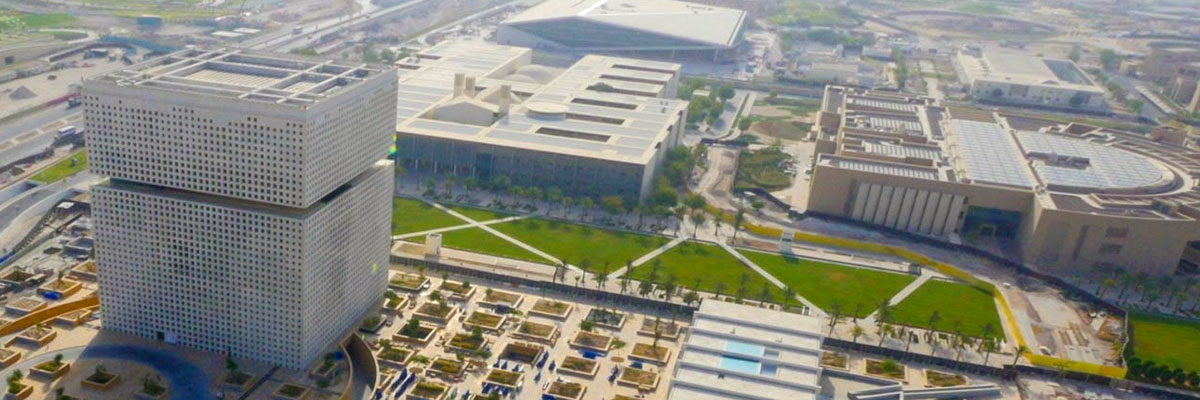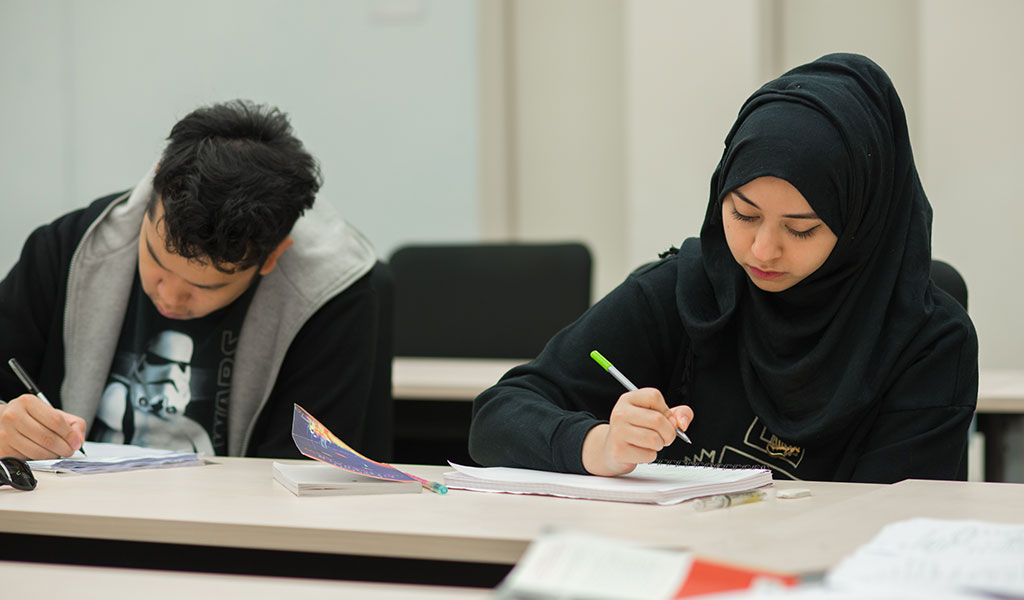
When it comes to the ethics of educational collaboration, and the ambition required to have a meaningful impact on students, one should look no further than the Qatar Foundation. In the Middle East, education can be a rather subversive service, with many countries limiting access to quality education for political and cultural reasons. But in Qatar, bustling industries and investments are being made to increase access to education. Education City, as it’s known in the region, is a large and expansive landscape filled with campus buildings, research centers, student housing and multi -disciplined facilities. This is all made possible by the Qatar’s growing partnerships with leading international universities. In the spirit of education collaboration, renowned universities such as Georgetown, Northwestern, and Texas A&M have all set up satellite campuses in Education City.


Pictures of Education City and its sprawling landscape of state-of-the-art academic facilities.
The Qatar Foundation is a strong example of what can be accomplished for students when institutions embrace the spirit of international collaboration in the name of advancing quality education. Hamad Bin Khalifa University, established by the Qatar Foundation, is at the foundation of this collaboration, as the communication, innovation and relationships of its international partners has enabled groundbreaking research programs. Funding and oversight of these pursuits come from a broad range of supporters, who notice the ambition and drive of the Qatar Foundation, and champion their goals of comprehensive education. Interdisciplinary programs such as the Academic Bridge Program, an initiative that brings students from schools around the world to collectively work on projects in their given discipline, is another example of their robust collaborative spirit.

What the Qatar Foundation understands, and why they are so successful, is that collaboration is an imperative element of growth. In order to achieve goals and overcome obstacles, bodies of higher education must rely on each other for improvement, adaptability, course corrections and community engagement. The international aspect of their collaboration also speaks to the amicable nature of foreign relations, as it relates to the matters of education. From hosting conferences, funding expos, and research projects, to their general message of promoting lifelong learning for all students, this foundation truly embodies a collaborative and forward-thinking institution of higher education. The Qatar Foundation is establishing a dynamic and innovative educational ecosystem by fostering a community of collaboration. This ecosystem, which surely serves as an example to the rest of the education community, will guide students to confront the complex challenges that will be faced in the 21st century.